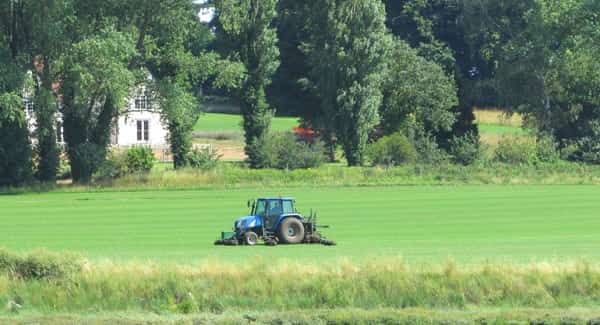Agricultural Lease Solicitor Cork, Midleton and Dublin

A well written land lease should clearly stipulate the obligations of all parties involved and will provide future legal protection in the event of any disputes. Walsh and Partners Solicitors LLP specialises in agricultural leases and will draft a document that covers the obligations and rights of all parties involved in a clear and concise manner.
There’s good reason why farmers may consider leasing. In many instances farmers may own land that they are not working and will be happy to see an active farmer putting the land to good use.
Agricultural Lease Solicitor Cork
In instances where the owner of the land has retired or perhaps has inherited a farm from a relative and has no interest in farming, leasing is a great option. This will also benefit the lease holder who may not have the funds to invest in buying property.
Thankfully, tax incentives are also in place for farmers who are contemplating a lease of their land to active farmers or business owners.
Farm Leases and Renewable Energy Leases
When we speak about a legal lease, we refer to an agreement between the person who owns the land (the lessor) and the person who is renting the land (the lessee). This agreement should clearly set out the rights and obligations of all parties involved, for the duration of the land lease. This protects all parties in the event of any dispute. A lease is only valid once it has been signed by the lessor and the lessee, and signed by a witness who is independent.
Should the land owner wish to claim tax exemptions, they will need a written land lease to do so.
The IFA has made available a master agricultural lease that can be edited to suit your particular circumstances, and other templates are available readily online. However, it is also still imperative that you seek legal advice prior to signing any document. An agricultural law expert can also assist with the drafting of the land lease and any unique clauses you wish to address and record. Both parties should seek legal representation to ensure their needs and priorities are met in the land lease.
As agricultural law experts in Ireland, we would recommend that the following areas are considered prior to entering into any agreement:
- The area of land in question should be determined and agreed upon in advance of creating the land lease agreement. Use maps to clearly define boundaries for both parties.
- Determine the length of your lease in advance with an option to extend if required at the end of the term.
- Settle upon a price, monthly is generally the best solution. Set a monthly payment date.
- Do you wish to include a clause for rental review in the agreement? This may be agreeable to both lessor and lessee as it will ensure neither party is committed to a particularly low or high rental price.
- Determine the usage of the land, what is the purpose of the land lease agreement? Will the new user be using the land for grazing, growing crops, tillage? This should be made clear in the agreement.
- Insurance should be addressed in depth. The lessor of the land/property will need to be sure that they are indemnified against any claims. However, they will still require their own insurance for public liability.
- A clause should be inserted in the land lease to ensure the lessee lodges the appropriate documentation with the Department of Agriculture in a timely manner. This will assist with any entitlements or payments due.
- Discuss subletting and agree conditions prior to writing up the land lease. In most circumstances the lessor’s permission in writing will be required should the lessee wish to sublet any of the site they are leasing, this needs to be detailed in the land lease agreement.
- Include a renunciation clause in the land lease to prohibit automatic renewal.
- Under circumstances where existing buildings are on the land in question. A separate lease is advised for use of these buildings.
- Always look to the future and also plan for termination of the agreement. Notice of the lease termination should be explored in detail and included in the land lease agreement.
- If the lessor sees a possibility that a family member (child) may in the future wish to construct property on the land, this should also be provided for in the document.
It is important to note that the list of items above is far from exhaustive and each lease agreement will have its own unique requirements. The most important piece of advice I can give you is that you contact a solicitor who is experienced in land leases and they will guide you expertly through each step of the process.
Karen Walsh is an agricultural law expert with offices in Cork, Midleton and Dublin. Her vast experience in farming law will give you the confidence you need to proceed with a land lease agreement as either a lessee or lessor.


